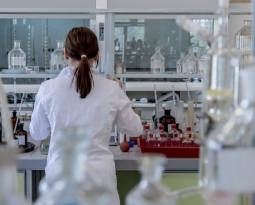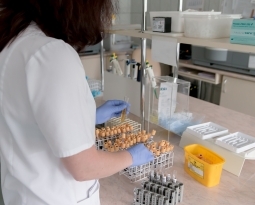Artificial Intelligence is used to Discover a Powerful Antibiotic
Researchers at the Massachusetts Institute of Technology (MIT) have had a major breakthrough in the fight against antibiotic drug resistance.
MIT researchers have harnessed Artificial Intelligence (AI) technology which utilizes a unique algorithm having the capability of analyzing over 100 million chemical compounds in just a few days. The team at MIT trained their AI on 2,500 molecules that included a combination of 1,700 established drugs and 800 natural products. This led the AI to discover an antibiotic compound, halicin, which has proven extremely effective in combatting many types of resistant bacteria in a novel way. Unlike most traditional antibiotics, halicin destroys bacteria by limiting the bacteria’s ability to maintain the electrochemical gradient necessary to produce energy-storing chemicals. The powerful properties of halicin was highlighted when the team at MIT ran tests alongside E.coli; E. coli did not develop any resistance to halicin even after 30 days. Conversely, E. coli developed resistance to a more conventional antibiotic, cipoflozacin, within just three days.
Antibiotic resistance has been referred to by the World Health Organization (WHO) as “one of the biggest threats to global health security and development today”, due to the threat of antibiotics becoming ineffective when they are really needed. Without the discovery of new antibiotics, the WHO has estimated 10 million lives around the world could be at risk each year from infection by 2050.
James Collins, a bioengineer at MIT said, “[halicin] is one of the more powerful antibiotics that has been discovered to date, due to its remarkable activity against a broad range of antibiotic-resistant pathogens”. Collins added, “[as a team, we] wanted to develop a platform that would allow us to harness the power of artificial intelligence to usher in a new age of antibiotic drug discovery.”
This breakthrough highlights the power of computer-aided drug discovery, and AI’s ability to be utilised to fast-forward the early stages of drug discovery to make a substantial impact.

















